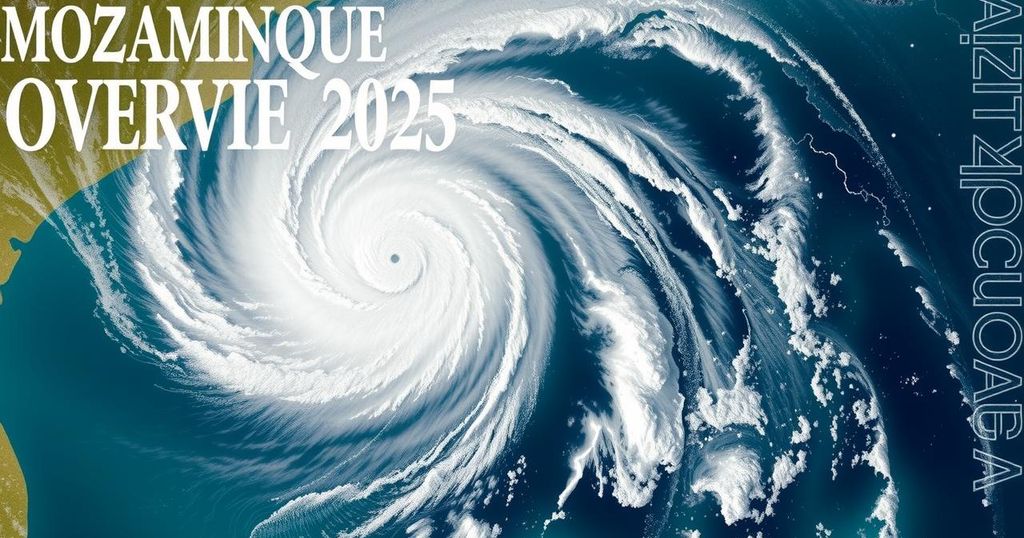Mozambique Humanitarian Crisis: Impact of Cyclone Chido and Ongoing Displacement Challenges

Mozambique is facing a humanitarian crisis following Tropical Cyclone Chido, which has caused numerous fatalities and extensive displacement. As of January 2024, 2.3 million individuals need humanitarian support. Approximately 3.3 million people are projected to confront acute food insecurity during the lean season, largely due to ongoing conflict and adverse weather conditions.
Mozambique is currently grappling with a complex humanitarian emergency exacerbated by various crises, including Tropical Cyclone Chido, which struck on December 15, claiming at least 73 lives and affecting approximately 329,500 individuals. As of January 2024, 2.3 million people require humanitarian assistance within the country. Additionally, the ongoing conflict in the northern provinces has compounded existing vulnerabilities, resulting in significant internal displacement, with reports indicating 717,000 internally displaced persons (IDPs) due to violence and conflict.
The humanitarian landscape in Mozambique is alarming; about 3.3 million people are projected to face acute food insecurity from November through February. Contributing factors include multiple disease outbreaks and an earlier-than-normal depletion of food stocks due to poor harvests, as reported by the Famine Early Warning Systems Network (FEWS NET). The situation remains precarious, especially in Cabo Delgado Province, where ongoing violence has severely curtailed humanitarian access and raised critical protection concerns for those impacted by the continued unrest.
Efforts to provide assistance to returnees—estimated at 611,000 in total—are further complicated by the rising needs of the local populations. Addressing these various levels of crises will demand a coordinated and sustained humanitarian response to alleviate the deteriorating conditions faced by millions across Mozambique.
Mozambique is experiencing a multidimensional crisis characterized by a combination of extreme weather events, widespread displacement due to conflict, and mounting food insecurity. The humanitarian situation has become increasingly dire with the arrival of Tropical Cyclone Chido, which has worsened pre-existing vulnerabilities among affected populations. The International Organization for Migration (IOM) and United Nations (UN) have been tracking the impacts of these crises, highlighting the need for substantial humanitarian assistance to support the millions of individuals affected. The challenges posed by ongoing conflict, particularly in the northern regions such as Cabo Delgado, further complicate efforts to stabilize the humanitarian landscape and ensure safe access to essential resources.
In summary, Mozambique is facing a severe humanitarian emergency driven by multiple crises, including the impacts of Tropical Cyclone Chido, widespread displacement due to conflict, and rampant food insecurity. With millions requiring urgent assistance, particularly during the lean season from November to February, it is imperative that the international community mobilizes resources and coordinates efforts to deliver effective support. Addressing the needs of internally displaced persons and returnees remains a top priority to restore stability and provide relief to those suffering in this challenging environment.
Original Source: reliefweb.int







